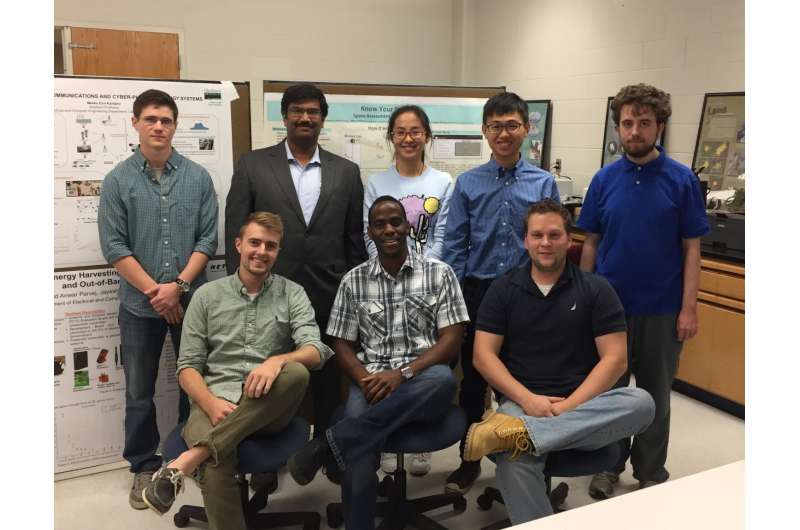New echolocation app on Google Play

A new app developed by Clarkson University faculty and students allows users to use echolocation to better understand their surroundings.
Developed by Assistant Professor of Electrical & Computer Engineering Mahesh Banavar and his students, the app, "Reflections," enables users to determine distances to objects by measuring the time taken for a transmitted sound signal to return to the device after reflecting off objects.
Reflections can assist users in low-visibility situations to determine how far away objects are and the types of objects—like tables, walls or cushions.
The app also can allow users to conduct special echolocation analysis of a room to determine what activities the space is most suitable for, such as working or studying.
Reflections is an Android-based eModule that can be used for echolocation education across K-12, undergraduate and graduate education. Users can manipulate the type of sound that is transmitted, which allows them to better understand the role of signal processing in RADAR and SONAR systems.
The app is also packaged with a set of notes describing the functionality of the app, the basics of echolocation, and its application to advanced systems such as RADAR, LIDAR, and SONAR, as well as quizzes to test the concepts introduced by the demonstration and the notes.
Banavar said the group is now working to develop companion videos and extended notes for Reflections.
Funded in part by a National Science Foundation Division of Undergraduate Education Award, the app is a collaborative effort with Andreas Spanias, professor in digital signal processing and director of the Sensor Signal and Information Processing (SenSIP) Center at Arizona State University.
Learn more at https://play.google.com/store/apps/details?id=edu.clarkson.reflectionapp .
Provided by Clarkson University



















